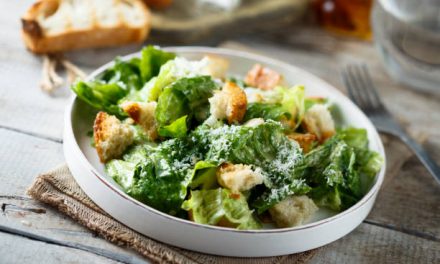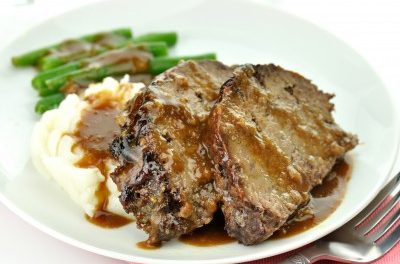Eggnog Recipe and History
Eggnog is one of the most iconic holiday drinks, celebrated for its creamy, luxurious texture and sweet, spiced flavor. It brings warmth and nostalgia to winter gatherings, Christmas dinners, and festive parties. This beloved beverage has roots that reach far back into European culinary traditions, and over time, it has evolved into a cherished seasonal symbol of comfort and joy.
The History of Eggnog
The origins of eggnog trace back to early medieval Europe, where a hot, milky, ale-based drink called “posset” was commonly served in monasteries and noble households. Made with milk, eggs, and spices, posset was often enjoyed as both a dessert and a medicinal tonic. By the 13th century, monks were known to drink posset flavored with figs and sherry, and its reputation as a drink of celebration began to grow.
When the recipe traveled to the American colonies in the 1700s, ingredients such as rum and brandy replaced sherry and ale. Eggs and milk were more readily available in the colonies, making eggnog a drink of abundance and festivity. Because rum was inexpensive and easy to acquire from Caribbean trade, it quickly became the preferred alcohol in colonial versions of eggnog. Over time, American variations incorporated bourbon or whiskey as well, solidifying its place as a staple of Christmas celebrations.
The name “eggnog” likely comes from a combination of “egg” and “nog,” an old English term for a strong ale or a small wooden mug used to serve drinks. By the late 18th century, eggnog had become synonymous with the holiday season, appearing in households, taverns, and celebrations throughout America.
One famous story tied to eggnog’s history is the “Eggnog Riot” of 1826 at the United States Military Academy at West Point. Cadets smuggled whiskey into the barracks to make eggnog for a Christmas party, leading to a night of drunken chaos and resulting disciplinary actions. Despite the scandal, the event immortalized eggnog’s deep connection to holiday merriment and indulgence.
Ingredients and Preparation
The traditional recipe for eggnog is simple yet decadent. The following version captures the classic balance of sweetness, spice, and creaminess that defines this timeless drink.
Ingredients
- 4 large eggs
- ¾ cup granulated sugar
- 2 cups whole milk
- 1 cup heavy cream
- ½ teaspoon ground nutmeg
- 1 teaspoon vanilla extract
- Optional: ½ cup rum, bourbon, or brandy
- Ground cinnamon for garnish
Instructions
- In a large bowl, whisk the eggs until they become light, frothy, and pale yellow. This step is key to achieving a smooth, velvety texture.
- Gradually whisk in the sugar until it dissolves completely.
- In a medium saucepan, combine the milk, cream, and nutmeg. Heat gently over medium heat until the mixture is steaming but not boiling.
- Slowly pour the hot milk mixture into the egg mixture, whisking continuously to temper the eggs and prevent curdling.
- Return the mixture to the saucepan and cook over low heat, stirring constantly, until it thickens slightly — it should coat the back of a spoon.
- Remove from heat and stir in the vanilla extract and alcohol (if using).
- Chill the eggnog in the refrigerator for at least two hours before serving.
- Pour into mugs or glasses, sprinkle with cinnamon, and enjoy cold or gently warmed.
This recipe yields about four servings and can easily be doubled for larger gatherings.
Variations and Modern Twists
While traditional eggnog is rich and indulgent, modern recipes often adapt it to suit different preferences and dietary needs. For a lighter version, you can substitute almond milk or oat milk for dairy and use honey or maple syrup as a natural sweetener. Vegan eggnog versions replace eggs with blended cashews or silken tofu, creating a creamy, plant-based drink that still captures the original’s festive charm.
For those who enjoy a boozy edge, aged eggnog has gained popularity in recent years. This version is made weeks or even months in advance and stored under refrigeration, allowing the alcohol to preserve the mixture while deepening its flavor over time. Chefs and mixologists often experiment with unique infusions, adding ingredients such as espresso, chocolate, or pumpkin spice for creative seasonal twists.
The Cultural Significance of Eggnog
Beyond its delicious flavor, eggnog represents more than a drink — it’s a symbol of celebration, togetherness, and holiday spirit. In many families, making eggnog is a cherished annual tradition passed down through generations. Its creamy consistency and aromatic spices evoke feelings of warmth and nostalgia, recalling cozy winter nights spent by the fire and the laughter of loved ones.
In America and Canada, eggnog is most commonly enjoyed during December, appearing at holiday parties, family dinners, and Christmas Eve gatherings. In the United Kingdom, similar drinks like “posset” and “advocaat” continue the European legacy. Latin American countries have their own variations too, such as “rompope” in Mexico and “coquito” in Puerto Rico, both rich, spiced, egg-based drinks enjoyed during festive occasions.
Serving Suggestions
Eggnog can be served in numerous ways to enhance the holiday experience. It’s delightful when topped with whipped cream, a dusting of nutmeg, or a cinnamon stick for a festive touch. Pairing it with desserts like gingerbread cookies, fruitcake, or shortbread creates a perfect balance of flavors. For adults, adding a splash of spiced rum or bourbon adds depth and warmth to the drink, while for children, a nonalcoholic version offers the same comforting experience.
Conclusion
Eggnog’s enduring popularity comes from its perfect harmony of flavor, texture, and tradition. Each sip brings together centuries of culinary history, from medieval posset to the modern-day holiday table. Whether made the classic way or with contemporary twists, eggnog remains a timeless drink that celebrates joy, indulgence, and the spirit of togetherness.
References:
- Food Network. (2024). Classic Eggnog Recipe and Variations. Retrieved from https://www.foodnetwork.com
- BBC Good Food. (2024). Homemade Holiday Eggnog. Retrieved from https://www.bbcgoodfood.com
- Smithsonian Magazine. (2023). The Curious History of Eggnog. Retrieved from https://www.smithsonianmag.com
- Harvard University Press. (2023). Eggnog and the Evolution of Holiday Traditions. Retrieved from https://www.harvard.com







